Meet the first cohort who took part in FLIER, our cross-sector leadership programme:
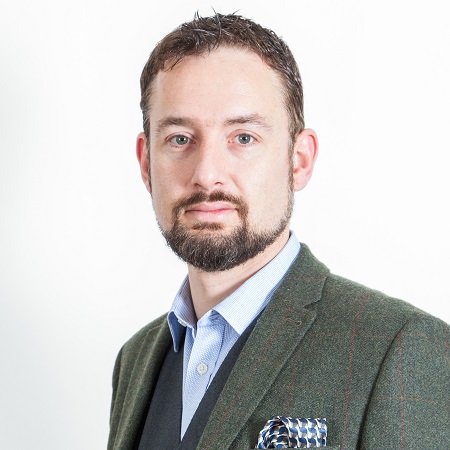
Professor Peter Bannister, Managing Director, Romilly Life Sciences and Healthcare Sector Executive Chair, Institution of Engineering and Technology
Peter has made pivotal contributions to multiple high-growth biomedical businesses via strategy development, fundraising, R&D, product development, operations and regulatory affairs leading to the commercialization and clinical adoption of innovative products for surgery, imaging, oncology and digital health.He established Romilly Life Sciences to facilitate evidence-led, cross-sector collaboration between clinical, life sciences and technology organizations who are in turn using data science and engineering products to improve health and care in multiple global contexts.
As Chair of the IET Healthcare Sector, his remit is to inform both the public and policy-makers on the part that engineering can play in addressing society’s healthcare challenges, while ensuring that engineers have the skills and cross-sector relationships across the healthcare delivery landscape needed to develop effective and timely solutions.
He holds a DPhil in Medical Imaging from the University of Oxford where he also carried out post-doctoral research in machine learning with Rolls-Royce. Peter is Honorary Chair at the University of Birmingham Institute of Applied Health Research, Chair of several NIHR funding panels, Leadership Theme Chair for the HDRUK Wellcome Turing Health Data Science PhD Programme, IET Fellow, chartered engineer and host of The Evidence Space podcast. Along with Dr Davide Danovi (FLIER Cohort 2) he is co-founder of Migration Biotherapeutics.
'Putting engineers in the picture to improve health care' read more about Peter's work
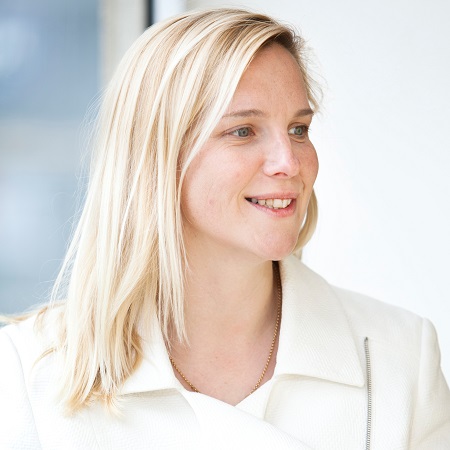
Dr Elin Haf Davies, CSO, Aparito; a wholly owned subsidiary of Eli Lilly and Company
(Job title at the start of the programme: Dr Elin Haf Davies, CEO/ Founder, Aparito)
Elin Haf Davies PhD has 20+ years’ experience clinically at Great Ormond Street Children’s Hospital, academically at University College London (Institute of Child Health) and as a regulator at the European Medicine Agency, where she was part of the team to implement the Paediatric Regulation. In 2014 Elin Haf founded Aparito, a digital health company dedicated to changing the drug development paradigm by using remote monitoring enabled by innovative technologies including mHealth (videos, voice, photos) and wearables. The company has since deployed its technology globally across 13 different disease areas. Aparito was acquired by Eli Lilly and Company in May 2024 and now support all of Lilly’s eCOA study needs.
Utilising the technology as one piece of the jigsaw Elin Haf hopes to make clinical trials more patient centric and more innovative in their approach. She works extensively with patient groups on this issue.
Outside of her professional life Elin Haf has a passion for sport adventure, having played rugby for Wales and rowed across both the Atlantic and the Indian Oceans.
'Using mobile technology to make research easier on patients' read more about Elin's work
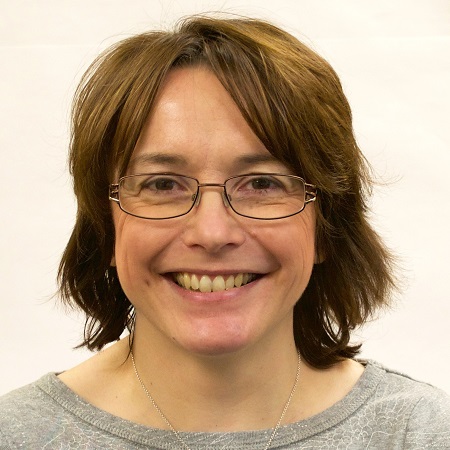 Professor Fiona Denison, Professor of Translational Obstetrics, University of Edinburgh, and Honorary Consultant Obstetrician, NHS Lothian
Professor Fiona Denison, Professor of Translational Obstetrics, University of Edinburgh, and Honorary Consultant Obstetrician, NHS Lothian
(Job title at the start of the programme: Professor Fiona Denison, Professor of Translational Obstetrics, University of Edinburgh)
Sadly, Professor Fiona Denison died in January 2022. Read more about her life and scientific achievements in this obituary on the University of Edinburgh website: https://www.ed.ac.uk/centre-reproductive-health/news/2022-news/prof-denison-obituary
Fiona Denison was Professor of Translational Obstetrics at the University of Edinburgh and Honorary Consultant Obstetrician in NHS Lothian (Clinical Lead for Maternity Obesity Services). She was passionate about interdisciplinary research and believed that working across traditional research boundaries and challenging established fields of research is the only way to drive forward world-leading innovation across the life sciences sector.
When she joined the Academy's leadership programme, she was leading the development of five novel medical devices with engineers, companies and clinicians and was Chief Executive Officer of a start-up company (Birthing Solutions Ltd) for one of these devices. She was Vice-Chair of the NICE Medical Technology Advisory Committee, had run multi-centre Health Technology Assessment funded clinical trials and was Chair of the External Steering Group for a Heriot Watt University Engineering and Physical Sciences Research Council Platform grant for medical device manufacture.
'Design through partnerships' - watch a short talk about Fiona's work
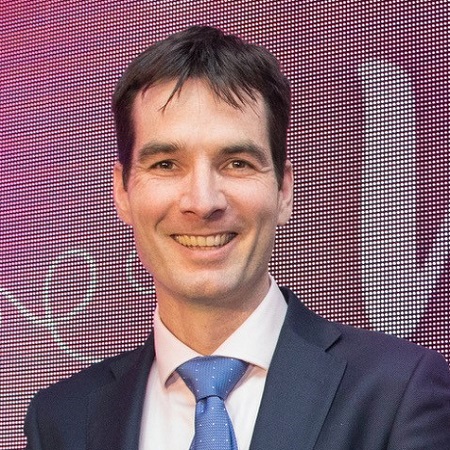 Professor Alastair Denniston, Consultant Ophthalmologist/Research Lead for Ophthalmology, University Hospitals Birmingham NHSFT and Honorary Professor, University of Birmingham
Professor Alastair Denniston, Consultant Ophthalmologist/Research Lead for Ophthalmology, University Hospitals Birmingham NHSFT and Honorary Professor, University of Birmingham
Alastair Denniston is an Honorary Professor in the University of Birmingham and Clinical Lead for Research and Innovation in Digital Healthcare at the University Hospitals Birmingham NHS Foundation Trust; he is also a Consultant Ophthalmologist leading a Service specialising in the diagnosis and treatment of retinal disease and intraocular inflammatory syndromes, and part of the NIHR Biomedical Research Centre of Moorfields Eye Hospital/Institute of Ophthalmology, UCL.
His international research programme is focused on the development and evaluation of diagnostic and monitoring tools that lead to earlier diagnosis, refinement of treatment and personalisation of care reflecting feedback across domains ranging from patient reported outcomes to automated and AI-supported analysis of imaging modalities, using eye health as an exemplar for the wider life sciences. He seeks to harness the strengths of all sectors - including NHS, academic, charity and industry - to use modern technology and emerging treatments to bring benefit to patients.
In 2020 he led the first international reporting guidelines for clinical trials of AI interventions (SPIRIT-AI and CONSORT-AI) which has been adopted by the world’s leading journals, and endorsed by leading regulators. He has national roles in the regulation of AI as a medical device including as an adviser to the MHRA and sits on the UK Government’s Regulatory Horizons Council.
'Learning to lead in eye health research' read more about Alastair's work
Professor Chris Gale, Professor of Neonatal Medicine and Deputy Director of Imperial Clinical Trials Unit, Imperial College London and Consultant Neonatologist, Chelsea and Westminster NHS Foundation Trust
(Job title at the start of the programme: Dr Chris Gale, Clinical Senior Lecturer in Neonatal Medicine, Imperial College London
My primary research interest is using data efficiently and at scale to improve the care of preterm and sick babies; this combines definitive clinical trials, population-level observation research and surveillance, in parallel with effective dissemination and implementation. A core component that runs through my research is increasing parent and patient involvement.
I am running the world’s largest neonatal trial, as well as innovative neonatal trials where all trial processes have been integrated into existing electronic patient record systems. These seek to determine the best way to feed very preterm babies whilst they are on the neonatal unit and avoid one of the most feared complications of preterm birth, necrotising enterocolitis. By making research simple and efficient, my ambition is to continually improve the quality of care we provide to our most fragile patients.
'Simplifying research to improve care for preterm babies' read more about Chris's work
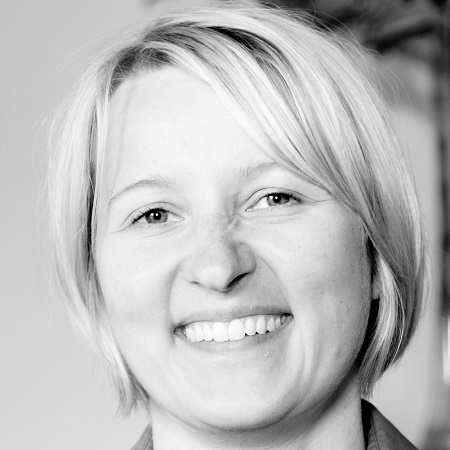 Professor Niina Kolehmainen, Professor in Child Health Research, Newcastle University
Professor Niina Kolehmainen, Professor in Child Health Research, Newcastle University
(Job title at the start of the programme: Dr Niina Kolehmainen, Senior Clinical Lecturer, Newcastle University)
Niina is an allied health clinician scientist, and her priority is to lead internationally significant research into early life physical activity behaviour as a way to prevent long-term health conditions related to inactivity (e.g. diabetes, depression and dementia). With training in public health, health services research, behaviour change, implementation science, and allied health, Niina integrates a wide range of perspectives to her research and collaborates with colleagues across disciplines. She describes herself as particularly strong at seeing connections and creating something new from them, and from the FLIER programme she hopes tools that enable her to move into spaces that facilitate this.
Niina’s research requires her to lead activities that span the traditional boundaries of health, life sciences and technology. She believes this is most likely to be effective through strong cross-sector collaborations and working with diverse, innovative teams to develop, test and implement ideas. From the FLIER, she is particularly looking for access to a wider mental, social and physical space where she can come together with others to think through and constructively challenge, discuss, and debate ideas.
'Meeting challenges to measure children’s movement' read more about Niina's work
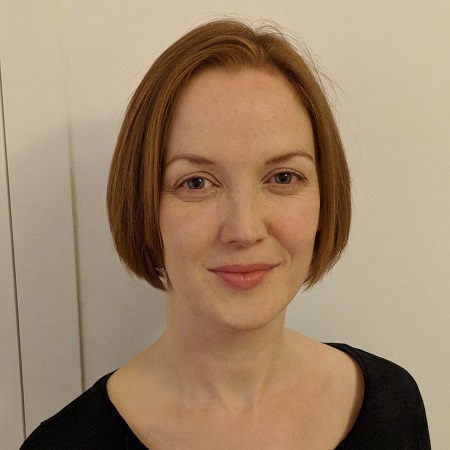 Professor Jennifer Logue, Senior Medical Director, Cardiovascular, Renal & Metabolism Early Clinical Development, AstraZeneca
Professor Jennifer Logue, Senior Medical Director, Cardiovascular, Renal & Metabolism Early Clinical Development, AstraZeneca
(Job title at the start of the programme: Dr Jennifer Logue, Clinical Reader in Metabolic Medicine, University of Glasgow)
Jennifer focuses both her research and clinical practice on the treatment of obesity and related metabolic disease. This includes interdisciplinary, mixed methods research to develop complex interventions, and pragmatic, efficient clinical trials utilising health record data. Her clinical work includes cardiovascular risk factor and weight management clinics.
She is the Associate Dean for Research for the Faculty of Health and Medicine and Deputy Clinical Director of the NIHR North West Coast Clinical Research Network. She is passionate about capacity development for research in the NHS, local authorities and third sector organisations.
She is Chief Investigator of the Surgical Obesity Treatment Study, a NIHR funded longitudinal cohort study of patients undergoing bariatric surgery, and Scottish Lead for the NIHR funded study LENS trial (Lowering Events in Non-proliferative Retinopathy in Scotland). She is clinical academic lead for the NIHR funded evaluation of the NHS England Low Calorie Diet Programme for remission of type 2 diabetes. In 2020, she received NIHR HTA funding as chief investigator for BE:COME (BEhavioural Weight Management: COMponents of Effectiveness) using trial and real-world data to determine the effective components of behavioural weight management interventions.
'Bringing people together to treat obesity' read more about Jen's work
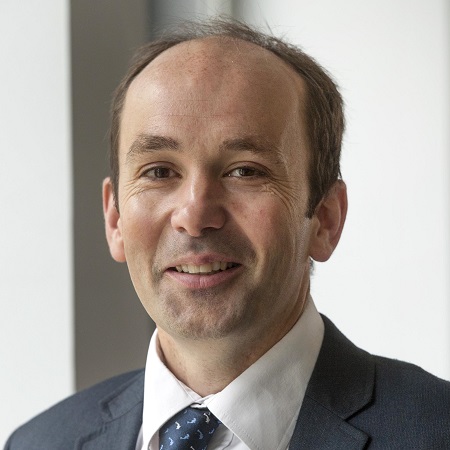 Professor Richard Mellanby, Professor of Comparative Medicine, University of Edinburgh
Professor Richard Mellanby, Professor of Comparative Medicine, University of Edinburgh
Richard graduated from University of Glasgow Veterinary School and after two years in small animal practice, he completed a 3 year residency in small animal medicine at the University of Cambridge. He was awarded the RCVS Diploma in Small Animal Medicine and the ECVIM Diploma in Companion Animal medicine before completing a Wellcome Trust Clinical Training Fellowship for which he was awarded a PhD from the University of Cambridge.
Richard moved to the University of Edinburgh in 2007 where he was awarded a postdoctoral Wellcome Trust fellowship and then a Wellcome Trust Intermediate Clinical fellowship to continue his investigations into factors which regulate the immune system. Richard was appointed Head of Small Animal Medicine in 2011 and Head of Veterinary Clinical Research in 2012. He was promoted to Head of Companion Animal Sciences in 2016 and was awarded a Personal Chair in Comparative Medicine in 2017.
'The vet who wants to eradicate rabies and learn about human disease' read more about Richard's work
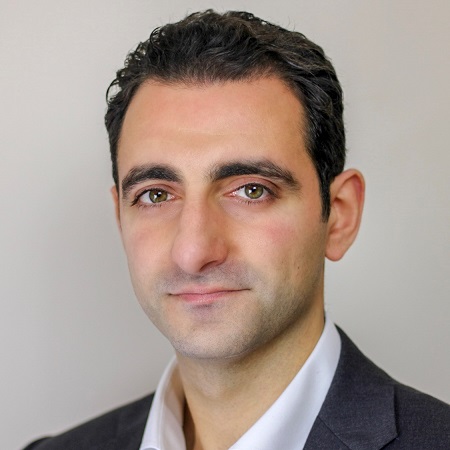 Dr Kinan Muhammed, Clinical Lecturer in Neurology, University of Oxford
Dr Kinan Muhammed, Clinical Lecturer in Neurology, University of Oxford
Kinan is a Clinical Lecturer in Neurology and Neurosciences at The University of Oxford and Research Fellow at The Queen’s College, Oxford. He trained in clinical medicine at Imperial College London and completed a DPhil at Oxford University as a Wellcome Trust Clinical Research Fellow. His research interests are in Cognitive Neurology and Translational Clinical Neurosciences, with a focus on preventative medicine. He has a strong interest in medical technology and is a NHS Clinical Entrepreneur and health innovation consultant.
Kinan has won numerous awards for his research, educational initiatives and entrepreneurial projects. He is currently studying the mechanisms of motivation and memory in health and neurodegenerative diseases and aims to develop novel strategies for early detection, risk stratification and prevention of cognitive decline in those with subjective memory complaints and early-stage dementia.
'Thinking big to spot the small signs of dementia' read more about Kinan's work
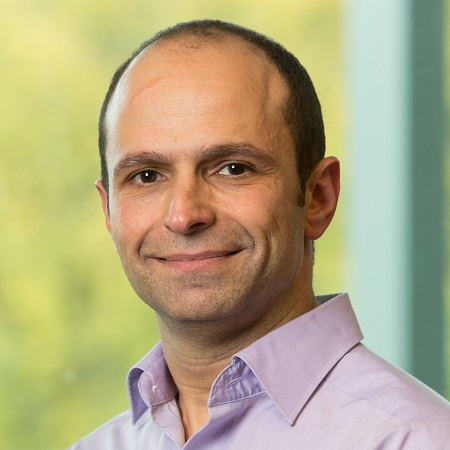 Dr Victor Neduva, Senior Principal Scientist, MSD and Honorary Lecturer, Imperial College London
Dr Victor Neduva, Senior Principal Scientist, MSD and Honorary Lecturer, Imperial College London
(Job title at the start of the programme: Dr Victor Neduva, Group Leader, GlaxoSmithKline)
Victor's role is based at MSD Discovery Research site in London, where he is working to develop treatments to target diseases of ageing with particular focus on neurodegenerative disorders.
He was previously a Scientific Leader heading Genomics group at Medicines Research Centre in Stevenage. He is focusing on identification and validation of novel biological targets, biomarkers discovery and understanding of disease biology. He is an Honorary Lecturer at Faculty of Medicine in Imperial College London. Prior to joining GSK in 2011, he was Marie Curie Research Fellow at Welcome Trust Centre in University of Edinburgh working on statistical approaches for network analysis and systems biology. He received his PhD from EMBL and University of Heidelberg in 2005 working on development of methods for proteomics data analysis and computational biology.
'Sharing data to accelerate drug discovery' read more about Victor's work
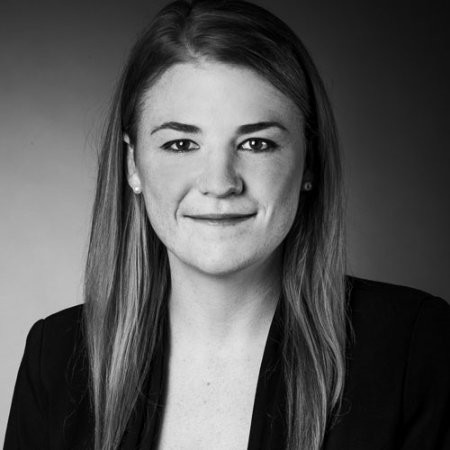 Ms Chelsea Roche, General Counsel and Company Secretary, Blue Earth Diagnostics
Ms Chelsea Roche, General Counsel and Company Secretary, Blue Earth Diagnostics
(Job title at the start of the programme: Ms Chelsea Roche, Senior Legal Counsel and Assistant Company Secretary, LifeArc)
Chelsea is General Counsel and Company Secretary at Blue Earth Diagnostics, a molecular imaging company developing precision radiopharmaceuticals for patients with cancer. Chelsea is a member of the executive team providing legal support on R&D, market access and commercial operations as well as quality, medical, regulatory and finance matters.
Dual-qualified as an English Solicitor and Australian Legal Practitioner, Chelsea has experience of supporting on complex litigation and dispute resolution; corporate governance; compliance; investment (equity & debt); IP licensing and business development; and drug research, development and commercialisation.
Chelsea started her career as a Nuclear Medicine Technologist in the NHS having obtained an undergraduate degree in Medical Radiations before studying law. She worked for several years at international law firms Bird & Bird LLP and Herbert Smith Freehills in London, Melbourne and The Hague advising clients in the life sciences sector. Chelsea was latterly Associate Director at LifeArc supporting translational research and funding activity and led the establishment of a £18m network of Innovation Hubs for Gene Therapies in partnership with the Medical Research Council.
Chelsea completed postgraduate IP studies at the University of Oxford in 2012 and is a member of the BioIndustry Association IP Advisory Committee. She is also an Independent Trustee at the Institute of Physics and Engineering in Medicine.
Chelsea has two children and in her spare time enjoys running and getting outside.
'The lawyer looking for more innovative funding for drug development' read more about Chelsea's work
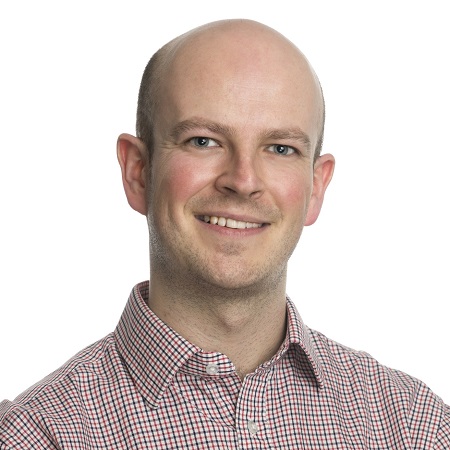 Mr Emlyn Samuel, Head of R&D Policy, GlaxoSmithKline
Mr Emlyn Samuel, Head of R&D Policy, GlaxoSmithKline
(Job title at the start of the programme: Mr Emlyn Samuel, Head of Policy Development, Cancer Research UK)
Emlyn is the Head of R&D Policy at GSK, a global biopharma company with a purpose to unite science, technology and talent to get ahead of disease together. In this role, he and his team partner with global R&D colleagues to identify issues and opportunities in the external policy environment and develop strategic proposals to support Government engagement to help accelerate GSK’s R&D strategy.
Emlyn was previously Director of Policy at Cancer Research UK, where he led a team of policy, public affairs and campaigning professionals to drive policy change to transform cancer prevention and survival. He previously led the policy development function within the same CRUK policy department. His previous roles outside CRUK include policy positions at the Wellcome Trust, The Academy of Medical Sciences, and a secondment to the Office for Life Sciences to support the development of the 2017 Life Sciences Industrial Strategy. He has a Bachelor of Science (BSc) in Applied Biology from University of Bath.
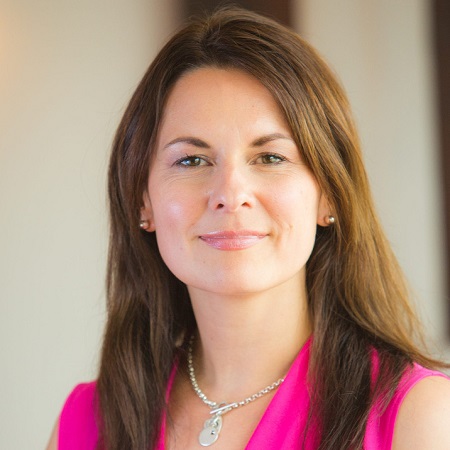 Dr Rebecca Sims, Research Fellow, Cardiff University
Dr Rebecca Sims, Research Fellow, Cardiff University
Now a prominent figure in the field of Alzheimer’s disease (AD) research, Rebecca graduated from Cardiff University’s School of Biosciences (BSc, 2005), before completing her PhD (2010). Rebecca’s research portfolio was diversified in 2017 with an MSc in Genetic Epidemiology and Bioinformatics.
Rebecca is a Senior Research Fellow in the School of Medicine, Cardiff University where her research focuses upon identifying and understanding genes that alter the risk of genetically complex forms of neurodegenerative disorders.
She is has secured funding to expand the centre’s work into dementia with Lewy bodies. Rebecca is UK Principal Investigator of the European Alzheimer’s disease biobank that is utilizing microarray technology to explore the genetic architecture of Alzheimer’s, mild cognitive impairment and vascular dementia. She also heads the Brain’s for
dementia Research project at Cardiff. Rebecca currently serves on the Alzheimer’s Society Biomedical Research Grant Board and is the Alzheimer’s Research UK Network lead for Wales.
'Taking a smarter approach to treating Alzheimer’s disease' read more about Beccy's work
Professor Katherine Sleeman, Laing Galazka Chair in Palliative Care, King's College London and Honorary Consultant in palliative medicine, King's College Hospital NHS Trust
(Job title at the start of the programme: Dr Katherine Sleeman, NIHR Clinician Scientist, King's College London)
I am a clinical academic in palliative medicine, based at the Cicely Saunders Institute at King’s College London. My research focus is on the intersection between palliative care and policy. I am the Director of the NIHR Policy Research Unit in palliative and end of life care.
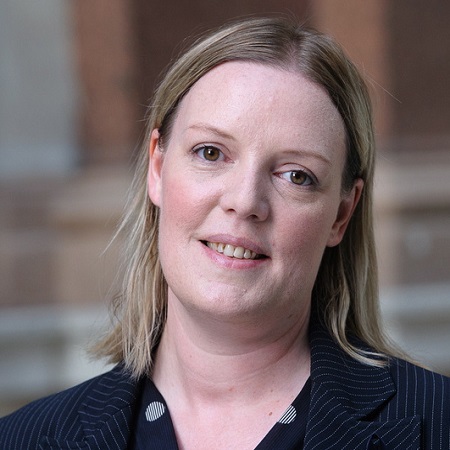 Professor Charlotte Summers, Professor of Intensive Care Medicine and Director of Clinical Academic Training, University of Cambridge
Professor Charlotte Summers, Professor of Intensive Care Medicine and Director of Clinical Academic Training, University of Cambridge
(Job title at the start of the programme: Dr Charlotte Summers, University Lecturer / Honorary Consultant in Critical Care Medicine, University of Cambridge School of Clinical Medicine)
Charlotte Summers is an academic intensive care physician with a passion for translating basic science into therapies for critically ill patients. She graduated in Biomedical Sciences and Medicine from the University of Southampton, and later undertook a PhD at the University of Cambridge alongside specialist clinical training in Respiratory and Intensive Care Medicine. Charlotte was later appointed as the UK’s first NIHR Clinical Lecturer in Intensive Care Medicine, and went on to earn a Fulbright All-disciplines Scholar Award and a Wellcome Trust Postdoctoral Fellowship for Clinician Scientists. In 2015, Charlotte returned to Cambridge from the University of California San Francisco.
Her current roles include:
- Professor of Intensive Care Medicine
- Honorary Consultant in Intensive Care Medicine, Cambridge University Hospitals NHS Foundation Trust
- Director of Clinical Academic Training, University of Cambridge School of Clinical Medicine
- Dean, Fellow and Director of Studies in Clinical Medicine, Selwyn College, Cambridge
- Member of the UK-COVID Therapeutic Advisory Panel
'Taking on the crisis in acute care research' read more about Charlotte's work
Professor Marc Vendrell, Personal Chair of Translational Chemistry and Biomedical Imaging, University of Edinburgh
(Job title at the start of the programme: Dr Marc Vendrell, Principal Investigator, University of Edinburgh)
Marc Vendrell is Professor of Translational Chemistry and Biomedical Imaging at the College of Medicine and Veterinary Medicine in Edinburgh. His team has pioneered the design of smart chemical fluorophores for high-resolution optical imaging in live cells, tissues and humans (>150 papers), and built an ambitious research programme linking physical and biomedical sciences through competitive funding (over £10M as PI (>£40M as co-I), including prestigious European ERC Consolidator and EIC Transition grants). Vendrell is co-inventor of 12 patents, PI for 9 licensed technologies and several collaborative projects with industry and Pharma, and has contributed to founding two spin-out companies on therapeutics and diagnostics.
Vendrell has a strong record of mentoring and training the next generation of translational scientists, with several alumni holding independent positions in academia and industry. He has won numerous awards and distinctions, with some of the latest being the Bader Prize by The Royal Society of Chemistry in 2023 and elected Fellow of the Royal Society of Edinburgh in 2024, the Scottish national academy. Vendrell currently heads the IRR Chemistry Hub at the College of Medicine in Edinburgh as one of the first global hubs for collaborative non-siloed chemical research to catalyse innovation in medical sciences and accelerate translational outputs.
'Illuminating chemistry to spot disease' read more about Marc's work
Dr Paul Wicks, Independent Consultant, Wicks Digital Health
(Job title at the start of the programme: Dr Paul Wicks, Vice President of Innovation, PatientsLikeMe UK)
Paul Wicks, Ph.D., is an independent consultant who helps life sciences companies generate evidence, revenue, and awareness. Clients include pharma (Astrazeneca, Compass Pathways), applied AI (Ada Health, Kheiron Medical), digital therapeutics (Constant Therapy, Happify, Woebot, Zemedy), data-driven communities (HealthUnlocked, Sano Genetics), and research institutions (Wellcome Trust, University of Cambridge). Prior to consulting, for 13 years he led innovation at PatientsLikeMe, an online community for over 750,000 people living with medical conditions. Paul has over 200 peer-reviewed publications including an observational trial of lithium in ALS, numerous patient-reported outcome (PRO) measures, a “dose-response” curve for the benefits of friendship, and applied AI in medical triage and mental health.
He has sat on the editorial boards of the BMJ, BMJ Digital Health & AI, BMC Medicine, JMIR, Digital Biomarkers and The Patient. His Ph.D. at the Institute of Psychiatry (King’s College London) explored cognition and neuroimaging in ALS, with a postdoc in psychological consequences of Parkinson’s disease. His work has been profiled by the BBC, NPR, CNN, BBC Radio 4, the Wall Street Journal, and the New York Times. In 2011 he was awarded MIT Technology Review’s TR35 “Humanitarian of the Year” award, and was recognized as a TED Fellow in 2012.
'Improving outcomes though patient power' read more about Paul's work